Army Cpl. Paul Hedge will be one of the newest residents of the Lakes Region, in a custom-built house complete with myriad adaptations for accessibility, provided through Homes For Our Troops.
“I’m overwhelmed right now, just seeing all of you coming out, the community welcoming me,” Hedge said Saturday morning during an event at Kingswood Arts Center in Wolfeboro.
The nonprofit Homes For Our Troops builds and donates custom homes specially adapted for severely injured veterans of the post-9/11 era theaters in Afghanistan and Iraq, assisting them with returning to civilian life.
Founded in 2004 in Massachusetts, the organization's staff and volunteers assist veterans of every branch of the military in the United States. When they build another house in South Dakota, they’ll have constructed shelter for veterans in 46 states.
The four-bedroom, two-bathroom homes they build include numerous special adaptations which provide full access to the home for the veteran — things like stairways, which many may take for granted, can prove major obstacles for those dealing with serious injuries as a result of their military service.
“They’re sitting on an acre of land, they’re single-story and they’ve got more than 40 major special adaptations designed into every single one of them to restore that freedom and independence,” retired Brig. Gen. Tom Landwermeyer, Homes For Our Troops president and chief executive officer, said. “Restore it to the veteran. We build it for the veteran, but it impacts the entire family.”
Wide hallways and doorways; automatic door-openers; roll-under sinks, stove tops and counters; pull-down shelving, a backup generator; sliding windows; roll-in showers; and a steel reinforced concrete store room built to Federal Emergency Management Agency standards for a closet are just some of the adaptations with which these houses come equipped.
And for Hedge, those things make a huge difference.
He’ll be moving to Tuftonboro from Colorado, and during his introduction to the community on Saturday morning, Hedge said it’s going to change his life in a big way.
“I want to just reiterate so much, thanking the community, elected officials, everybody who’s partnered with HFOT, everybody who’s coming out here and really making this work for veterans such as myself. Incredible,” he said. “I can’t thank you enough — a thousand times, a million times, thank you so much.”
Hedge enlisted in the U.S. Army in 2010. On June 1, 2012, while serving as an airborne infantryman, he was shot multiple times during his first combat deployment in Afghanistan. He suffered bullet wounds to both legs, shrapnel to his upper and lower body, tinnitus and a traumatic brain injury.
He chose to move to New Hampshire from Colorado because of its location and his lifestyle, which he characterized as active despite his injuries. In Fort Collins, where he lives currently, he has a difficult time breathing due in part to the altitude. He said he can breathe easy out here.
Hiking, spending time outdoors hunting and fishing and, possibly most importantly, the peacefulness are what drew Hedge to the community around Lake Winnipesaukee.
“We made it out to our lot the other night, and it was just a cacophony of crickets and frogs, singing their little choir song for us,” he said. “That’s what we’re here for — I don’t hear any crazy traffic or police sirens, the normal lullaby of a city.”
“We have picked this very small community to join, and we thank you so much for welcoming us in the way you have already. It’s already a testament to the character of the community in New Hampshire that we’ve chosen,” Hedge said.
For a veteran to be eligible for assistance from Homes For Our Troops, they must: have been injured in the theater of Iraq-Afghanistan war after Sept. 11, 2001; be retired or in the process of retiring from military service; have received a letter of eligibility for the Veterans Administration Specially Adapted Housing Grant program; pass a criminal background and credit check; and keep the home as their primary residence — they’ve got to accept the responsibilities of home ownership and be able to maintain it, and keep up with property taxes, home insurance and utilities.
“I did want to do more, I assure you. It wasn’t exactly my plan to punch out and retire early, but that’s the way it worked,” Hedge said. “Obviously, that predates this whole other tangent in life to have to figure out without a playbook.”
HFOT's funding comes from individual donors, private and family foundations and community fundraisers across the country, to a tune of 65%. The remainder of the organization's budget is provided by corporate sponsors in the form of cash and donated materials.
Recipients don’t pay a dime — neither during the construction phase nor afterward. In 2024, HFOT handed over the keys to 31 veterans and their families.
“Rehab and recovery is never easy for these guys or gals, it takes a long time. It’s painful, repeatedly, and, as I said, they’ll keep going through it from time to time throughout the rest of their lives,” Landwermeyer said.
“Paul is just like the rest of them: focused forward.”






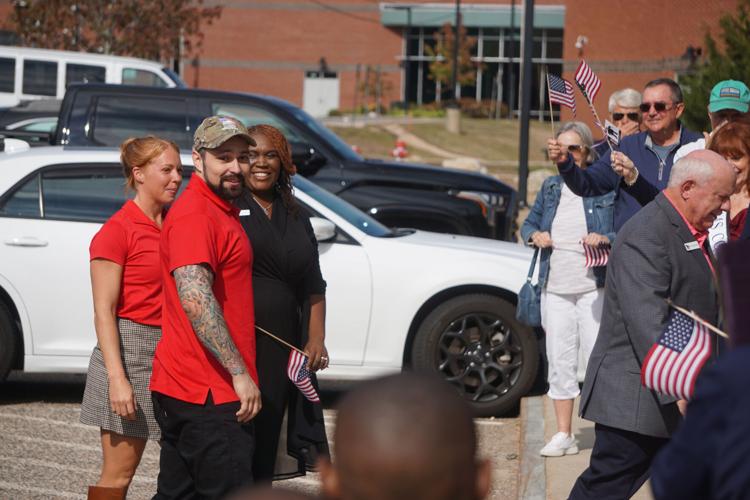
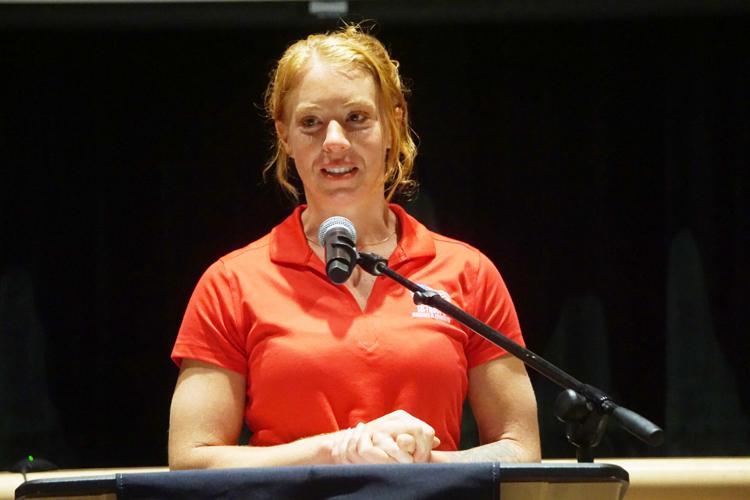
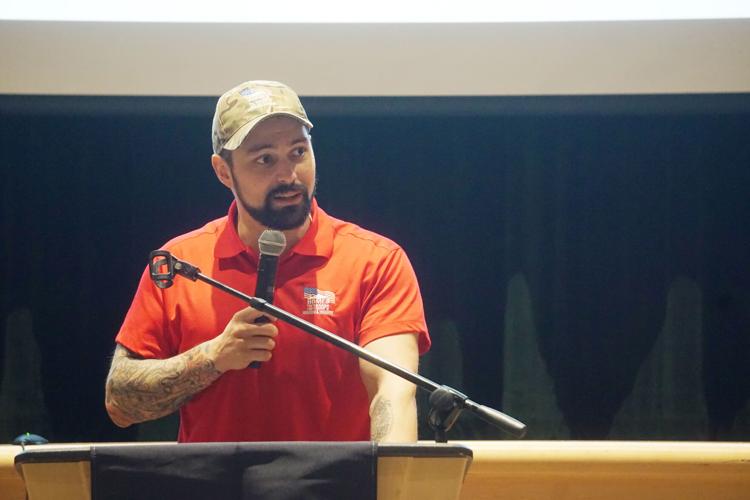
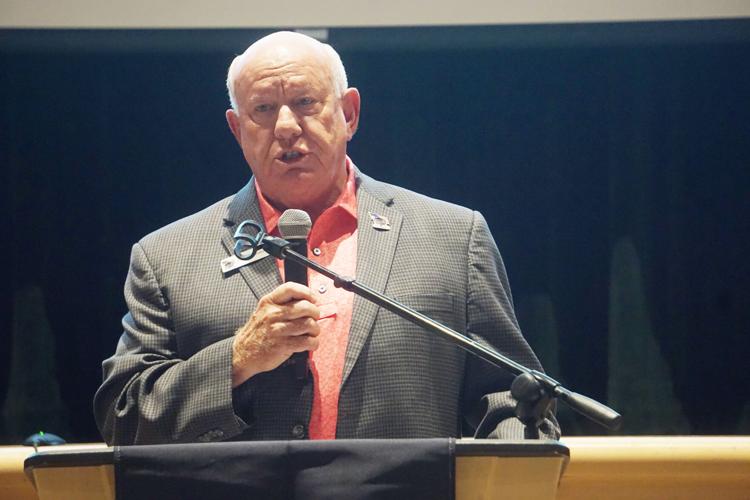
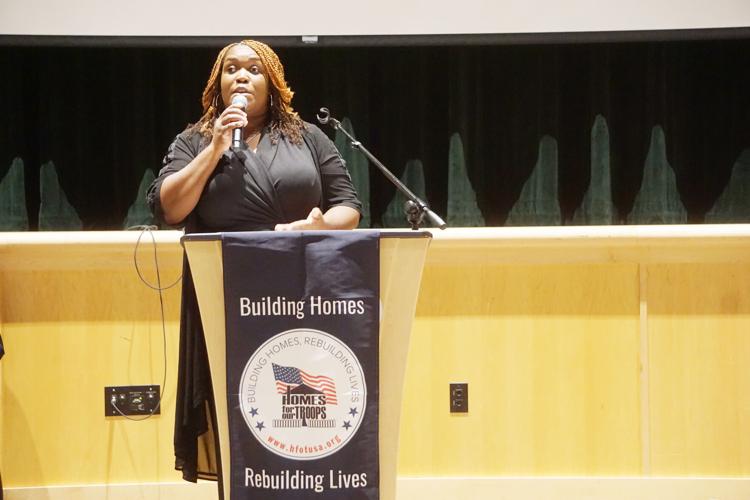

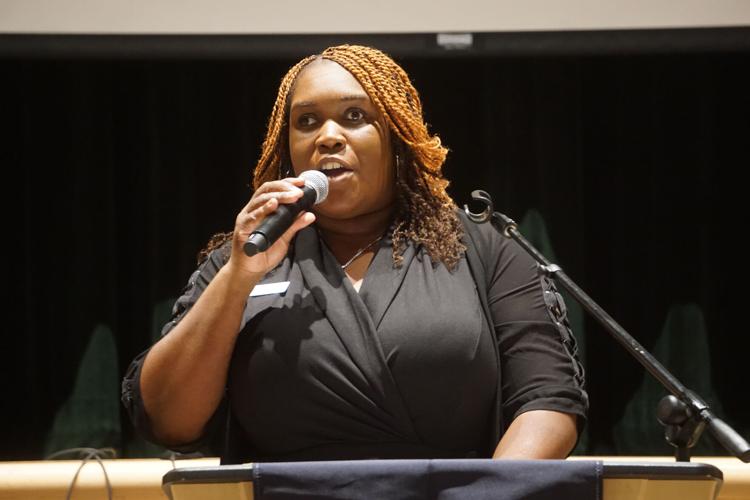
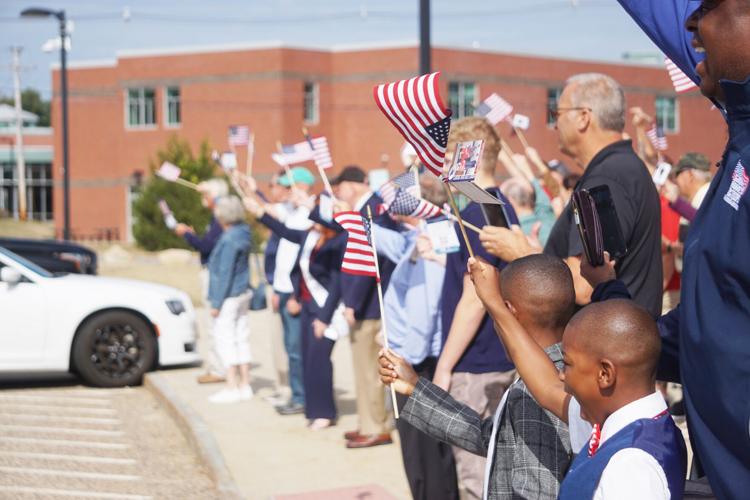
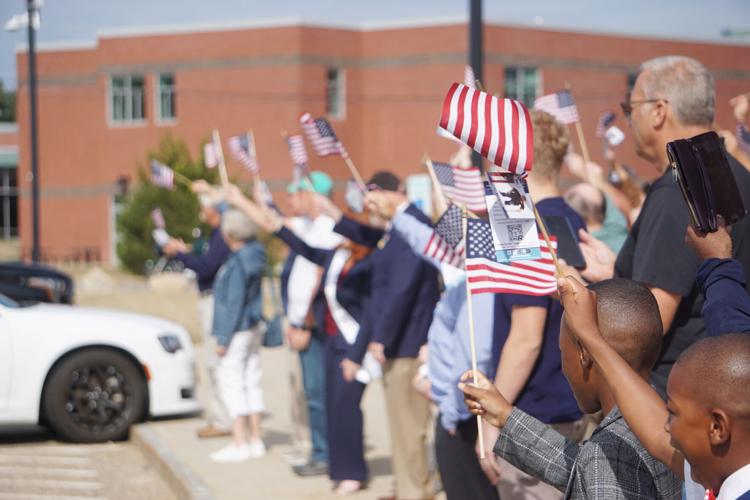











(0) comments
Welcome to the discussion.
Log In
Keep it Clean. Please avoid obscene, vulgar, lewd, racist or sexually-oriented language.
PLEASE TURN OFF YOUR CAPS LOCK.
Don't Threaten. Threats of harming another person will not be tolerated.
Be Truthful. Don't knowingly lie about anyone or anything.
Be Nice. No racism, sexism or any sort of -ism that is degrading to another person.
Be Proactive. Use the 'Report' link on each comment to let us know of abusive posts.
Share with Us. We'd love to hear eyewitness accounts, the history behind an article.